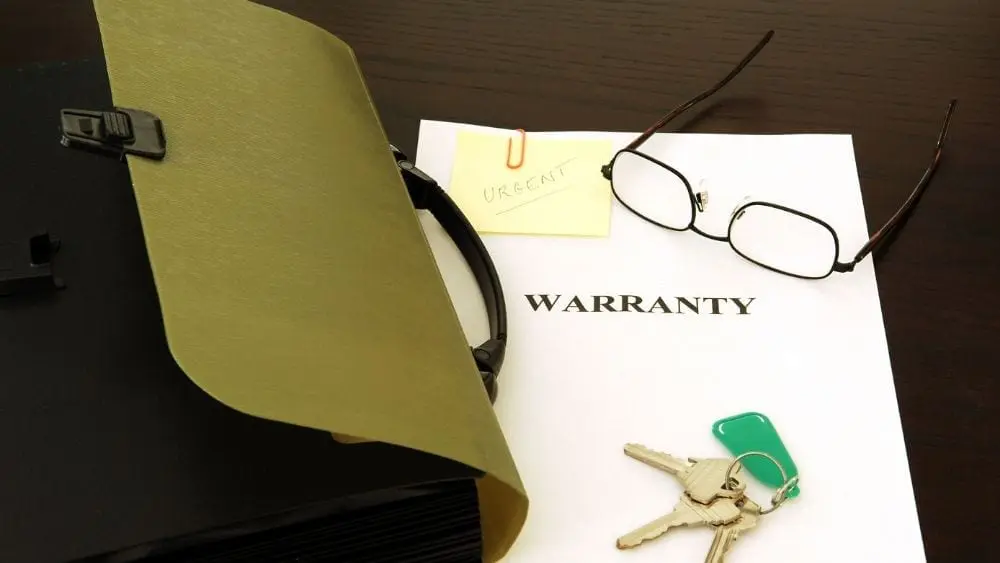
Most homes for sale come with a builder warranty or home service contract that’s supposed to give buyers peace of mind that any problems with the home will be repaired.
But which type of protection is better: a builder warranty or a resale home service contract?
The answer isn’t obvious. The two options differ significantly in both coverage and cost, which is why some new home buyers choose to have both.
What Do Builder Warranties Cover?
Builder warranties can vary dramatically between builders. One builder might offer a one-year warranty for the home’s interior, two years for its exterior and 10 years for its structural components. Another might offer more or less protection.
Some builders provide warranties themselves. Others purchase warranty plans for the buyer from a third-party company that will ultimately be responsible for any claims.
Builder warranties typically cover defects in workmanship or materials for a home’s major compBuilonents, but they don’t cover repairs if something breaks or gets damaged.
For example, defective drywall texturing might be covered, but a hole that a homeowner punched into a wall while moving furniture wouldn’t be.
Covered defects may be subject to what are known as “tolerances” that define what’s a defect and what isn’t. For example, a warranty might cover a concrete driveway crack that’s 3/16 of an inch wide, but not cover the same crack if it’s only 1/8 of an inch, says Jason Pochatek, warranty department director at Epcon, a home builder franchise company in Columbus, Ohio.
Tolerances might seem random, but Pochatek says many are derived from industry information compiled by building authorities, such as the National Association of Home Builders.
Builder warranties usually don’t cover appliances, either. Instead, appliances are protected by manufacturer’s warranties, which can be longer than the term of the builder’s warranty. A new roof might also come with a separate warranty from the roofing company.
Interested in purchasing a new home covered by a builder warranty? Start your shopping journey here.
What Do Home Service Contracts Cover?
Home service contracts cover repair and replacements of a home’s core systems and components, according to the National Home Service Contract Association (NHSCA), a trade group for home service contract providers.
Realty brokers often refer to these contracts as “home warranties,” but the NHSCA prefers the term “home service contract.” It explains that a builder’s warranty covers the workmanship and materials used a new home’s construction while a home service contract covers “the service, repair or replacement of major, built-in household appliances and systems on existing homes due to normal wear and tear.”
Covered items might include the furnace, electrical wiring, water heater, plumbing, ceiling fans and garage door opener. The amount of coverage per item may be limited to, say, $500 or up to $3,000, depending on the plan and coverage that’s purchased.
Major appliances, such as a kitchen refrigerator, clothes washer, air-conditioning system, or swimming pool or spa equipment, might be included in the basic contract or could be add-ons for an additional fee.
Implied Builder Warranty
Builder warranties normally cannot be extended. When the warranty term ends, the protection ends.
However, an implied warranty might continue to hold the builder responsible for certain construction standards beyond the scope and term of a written warranty.
Implied warranties reside in state law to protect consumers from shoddy construction. An attorney — and perhaps a lawsuit — may be needed to enforce an implied warranty.
On the other hand, some builders will make repairs beyond what’s legally required for the sake of maintaining good customer relations.
“A lot of times when the homeowner calls us for assistance, we will go back out, but it’s more of a professional relationship thing than a legal warranty,” says Michael Cuesta, president of Cuesta Construction, a home builder in Miami.
Furthermore. if a newly built home is located within a homeowner association, the association may take over responsibility for the home’s exterior after the builder warranty ends.
What Does Each Service Contract Cost?
The cost of a builder warranty is built into the price of the home. Typically, homeowners pay no renewal fees, service charges or building code upgrade costs for repairs.
A home service contract is much different. This type of coverage is often purchased for a home buyer by a home seller or realty agent when a transaction closes.
Homeowners who receive a service contract normally can renew it annually for a fee. Renewal fees typically range from $300 to $900, depending on which plan is purchased.
Homeowners who have a service contract also pay trade fees of $60 to $125 for repair calls even when the work is covered by the contract. They also pay for building code upgrades if an outdated component needs to be replaced. Code upgrades can cost hundreds or thousands of dollars.
Whether you buy a brand-new home or a resale one, don’t assume that the builder or seller will provide a warranty or service contract. Ask for details in writing, read the warranty or contract thoroughly, and ask questions about anything you don’t understand before purchasing your new home.

Marcie Geffner is an award-winning freelance reporter, writer and editor in Ventura, California. In the last decade, she has penned more than 1,000 published stories about residential and commercial real estate, banking, credit cards, computer security, health insurance and small business, among other subjects. Editors describe her as “detail-driven,” “conscientious,” “smart” and “incredibly versatile.” Her award-winning reporting has been lauded as “rock solid,” “spot-on relevant,” “informative,” “engaging,” “interesting” and “nuanced.” Her stories have been cited in seven published nonfiction books and two U.S. Congressional hearings.
Prior to her freelance career, Geffner was senior editor of California Real Estate magazine. Later, she became managing editor of Inman.com, an independent real estate news website. She also has prior employment experience in technical writing, corporate communications and employee communications. She received a bachelor’s degree in English with high honors from UCLA and master’s degree in business administration (MBA) from Pepperdine University in Malibu, California. She enjoys reading, home improvement projects and watching seagulls at the beach.
 Changing Room Names Reflect How We Live
Changing Room Names Reflect How We Live